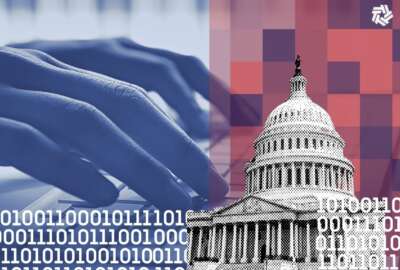

This content is provided by Kinetica.
This content is provided by Kinetica.
The COVID-19 pandemic has highlighted the need for applications that can deliver real-time insight for applications ranging from public health to logistics and supply chain. The challenge lies in converging numerous complex, fast moving data sources to deliver actionable information to first responders.
“The coronavirus is something that’s shifting in real time and the insights that you’ll need are going to come from the ability to, at the speed of thought, query and correlate datasets for insights,” Nima Negahban, co-founder and chief technology officer at Kinetica, said during the discussion “Active Analytics for Government and Public Sector,” sponsored by Kinetica. “Predictive capabilities can help to understand the next cluster or outbreak and you need to be able to do that data exploration at scale.”
Analysis of streaming, historical, and location data at scale can help organizations at the frontlines of COVID-19 to better allocate critical resources, guide decisions around health regulations, and make data driven decisions.
“We can track entities, graph analytics points and be able to see things unfold,” said Jeff Kennedy, federal sales director at Kinetica. “For something like coronavirus we can provide pretty detailed granularity on areas of containment and other things that are happening like real time logistics to get supplies to people who need them.”
These are data challenges that apply beyond the pandemic as well. Across government agencies, the need to solve complex data problems is widespread. One example is in national defense where organizations are charged with analyzing high speed data feeds to identify potential threats and unknown entities.
“With ISR and entity fusion where you need to be able to take massive data sets that are growing constantly and be able to derive what’s a person, what’s a jet or what’s a truck, and fuse it across other datasets to pull out other attribution, that’s what Kinetica makes easy,” said Nima.
The ability to converge datasets for analysis in a single place is one of unique attributes of a modern, active analytics platform.
“What we see a lot is organization may have, three, four, seven screens of data coming from different silos of data. And we’re involved with taking all of those feeds and providing a single pane of glass. You can interrogate data to meet your analyst’s needs right there in one place, instead of having to look at different screens,” said Jeff. “We increase the fidelity of your understanding of your data as you fuse things together. And then we power intelligent applications with that data whether they’re public facing or inside organizations.”
It’s not just about bringing the data together, it’s also about enabling an interactive experience for the end users. Providing analysts the ability to do on-demand, ad hoc analytics and ask questions of the data on the fly is where organizations need to move to keep pace with digital transformation.
“We’re really at a phase now where government organizations are going to say, it’s not good enough for an analyst to have limited capabilities. We need to unlock their potential because ultimately the insights that they derive feed executive decision making,” said Nima. “The entire organization is understanding how important data is in decisioning and the analysts are that tip of the spear. Kinetica unlocks their ability.”
A shift in the mindset of government organizations is making data and analytics a greater priority than ever before.
“You have a growing commitment from government organizations to unlock the value of the data they have access to. Government executives know that they need to make the right decisions, and have the data to point to to say why they made those decisions,” said Nima.
Listen to the full interview:
Copyright © 2024 Federal News Network. All rights reserved. This website is not intended for users located within the European Economic Area.


Co-Founder and Chief Technology Officer, Kinetica

Federal Sales Director, Kinetica

Defense Reporter, Federal News Network

Co-Founder and Chief Technology Officer, Kinetica
Nima leads Kinetica's technical strategy and roadmap development while also managing the engineering team. Leveraging his unique insight into data processing, he established the core vision and goal of the Kinetica platform. Early in his career, Nima was a Senior Consultant with Booz Allen Hamilton. He holds a B.S. in Computer Science from the University of Maryland.

Federal Sales Director, Kinetica
Jeff Kennedy is the Director of Federal business at Kinetica. Jeff is responsible for the full portfolio of client solutions, enterprise software, and services aimed at the U.S. federal customer. In his role, Jeff draws on his extensive 20+ years' experience in the federal space to lead the team's efforts to support and advise government and military customers seeking mission-critical big data real-time analytic solutions. Prior to Kinetica, Jeff has worked at organizations including Acuity Systems, C3 AI, Security First, Oracle, and Siebel.

Defense Reporter, Federal News Network
Scott Maucione is a defense reporter for Federal News Network and has worked in journalism for over a decade. He previously covered the Pentagon for Inside Defense. He received his B.A. in journalism and political science from the University of Maryland and his Master’s from American University in applied politics.
